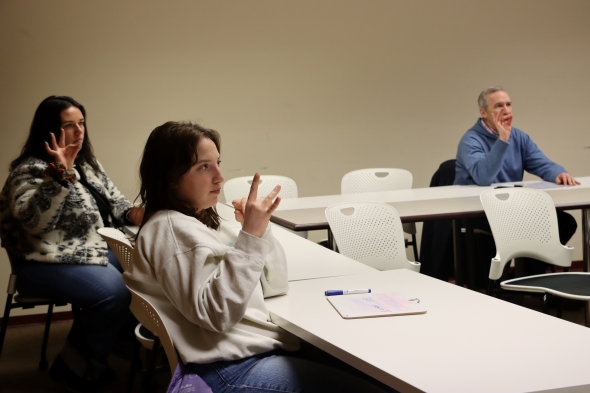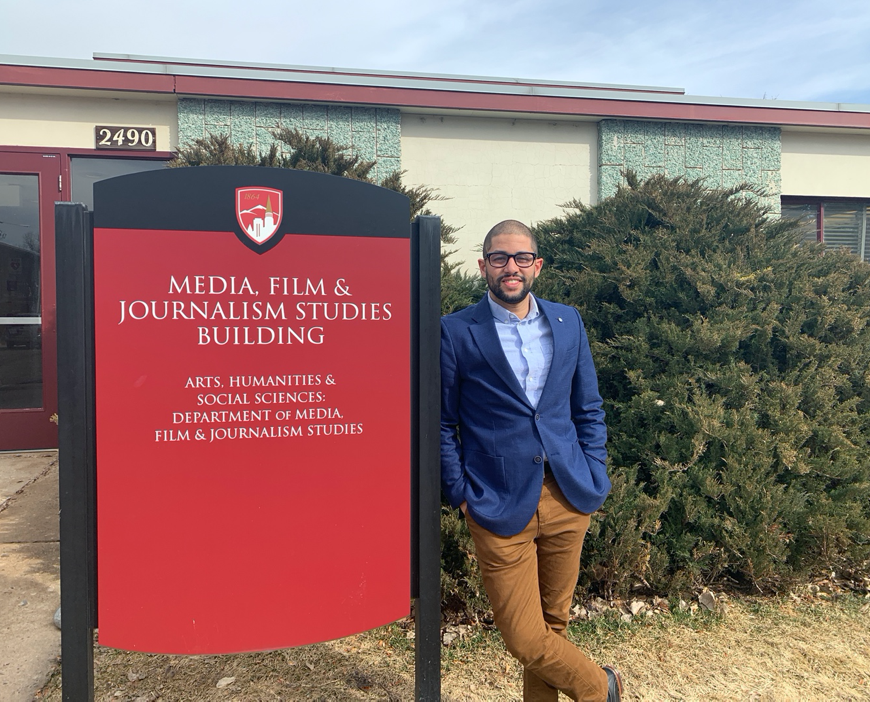Harper Lecture Speaker Exposes Plight of Latin American Migrants and Smugglers

Professor of Anthropology and Chicana/o and Central American Studies Jason De León , Lloyd E. Cotsen Endowed Chair of Archaeology and director of the Cotsen Institute of Archaeology at the University of California, Los Angeles, will deliver this year’s College of Arts, Humanities & Social Sciences Harper Lecture.
De Leon is a 2017 MacArthur Foundation Fellow and author of the award-winning book, "The Land of Open Graves: Living and Dying on the Migrant Trail." His latest book, “Soldiers and Kings: Survival and Hope in the World of Human Smuggling,” won the 2024 National Book Award for nonfiction and recounts his seven-year journey in understanding the lives of the Honduran smugglers who profit from transporting migrants across Mexico.
"The Harper Lecture is an amazing opportunity for our CAHSS community — alumni, supporters, students, staff and faculty — to come together to learn and reflect on topics that speak to the heart of our commitment to a liberal arts education,” said CAHSS Interim Dean Rachel Walsh. “Dr. De Leon’s work and lecture bring critical voices to the forefront and ask us to grapple with the complexities of immigration. We’re thrilled to welcome Dr. De Leon to campus."
The Harper Lecture will be held Wednesday, April 23, 2025, 6-7 p.m., in Craig Hall, preceded by a reception of light bites and beverages from 5-6 p.m. in Craig Hall's main lobby. Students, faculty, staff and community members can register for the event here.
Jason De Leon attributes his passion for studying the plight of Latin American migrants and their human smugglers to a decade of research working on archeological projects in Mexico as an undergraduate and graduate student at UCLA.
“I got to know a lot of people who were getting paid to dig ditches with archeologists, trying to make ends meet and thinking about whether or not migration would be the best move for them,” he said. “I became increasingly more interested in the stuff people were telling me as opposed to what was coming out of the ground.”
He went on to carve out a career devoted to excavating the lived experiences of migrants and the smugglers who move them. In his upcoming lecture, he plans to share insights from his second book that exposes the roots of why policies to address human smuggling largely fail.
“Everybody is running from something and in many ways, the people who are doing the smuggling are even worse off than the migrants they transport. "
“One of the reasons it’s so difficult to look at smuggling is that it’s a beast with many heads and evolves more quickly than anything you can throw at it,” he said. “My first book focused on how border-enforcement strategies do not work and this book shows that the only effective way to stop human smuggling is to stop the need for people to migrate.”
According to De Leon, migrants and smugglers defy rigid categorization and share common motivations and experiences. “Someone can be a migrant and become a smuggler or a smuggler and become a migrant. Both migrants and smugglers are part of a much, much larger political economic system that’s shaped by climate change, poverty and inequality.”
He added that “everybody is running from something and in many ways, the people who are doing the smuggling are even worse off than the migrants they transport. Many of the smugglers I worked with were failed migrants who did not have a social network to receive and support them in the United States and end up in perpetual motion.”
All are fleeing violence of one kind or another because of gangs, political corruption, climate change and low wages, De Leon found. In Honduras where he conducted much of his work “the political system is unstable, the economic system is underdeveloped and they’re being slammed by climate change,” he said.
He cited climate change as a primary reason people are fleeing “and the poor experience climate change in orders-of-magnitude-worse ways than the middle class and the rich. Border walls and hardline border security strategies do not address climate change around the globe that we must deal with as a global society. Such simplistic solutions just don’t work. They waste a lot of money and distract people from the actual problems, whether that be climate change, inequality or fear of the migrant ‘other.’”
De Leon hopes his talk will help people learn about immigration in a different way “that enables them to ask the difficult questions of politicians and hold people who are making policy decisions about immigration and spending taxpayer money accountable.”
He plans to share selected stories of smugglers’ lives from his latest book. “I try to find pieces of these people’s lives that I can talk about that speak to a broad audience so that people can see themselves in some of these stories despite that they’re occurring oftentimes a world away from their experience.”
According to De Leon, the book revolves around the story of a young smuggler named Roberto, who was murdered during De Leon’s first field session, and traces his life from beginning to premature end.
“This project taught me so much about empathy, hope and the difficult decisions that people often have to make in this world,” De Leon said. “I go into these projects always trying to learn something and hopefully come out not just a more informed person, but a better one.”
The CAHSS Harper Lecture brings prominent leaders from liberal arts fields to the University of Denver to discuss topics relevant to their work and the community and is made possible, in part, by the Heber Harper Humanities Distinguished Lectureship Endowment" Register for the Harper Lecture to hear more about De Leon’s transformative journey today.





